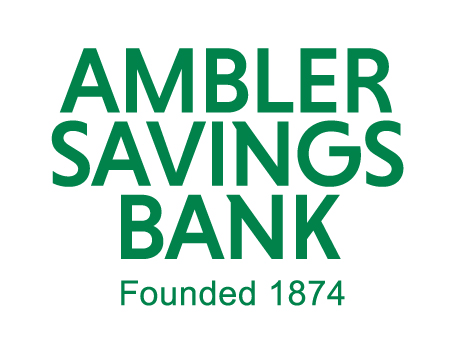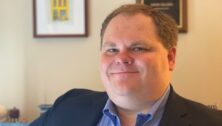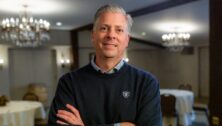Montgomery County Leadership: Leslie Heffernen, Chair of the Board, Ambler Savings Bank


Leslie Heffernen, Chair of the Board of Ambler Savings Bank, spoke with MONTCO Today about growing up in Syracuse, New York, punctuated by frequent visits to Queens and Colombia, where her mother is from. She shared how cheerleading and her first job at Kmart taught her about speaking up for herself and the value of hard work.
In addition to her career in tax law, Heffernen has served on Ambler Savings Bank’s board of trustees for 11 years. She recently became the first female and minority chair of the board and discussed her plans to amplify diverse voices on the board.
Where were you born and where did you grow up?
I was born the youngest of three children in Syracuse, New York – in the Snow Belt. My mother is from Bogota, Colombia, so we traveled quite a bit. We went to Colombia quite frequently as children, but also to New York City – primarily Jackson Heights in Queens.
What did your parents do?
My father worked for Travelers Insurance in workers’ compensation. He was there for most of his professional career.
My mother didn’t work, because we would spend a few months in Queens and summers in Colombia. She was very close to her family. She didn’t come to the U.S. until she was in her early 30s. When I was in high school, she started working for the county.
What do you remember about growing up in Syracuse, Queens, and Columbia?
The memories that stay with me are of me and my sister, who’s four years older, running around in Manhattan. I was 7 years old and she was 10 or 11. We would just get on the subway and go.
We used to hang out in front of the Waldorf Astoria Hotel to catch a glimpse of The Jackson 5 and other celebrities, including Madonna. Although I had no idea who she was, we asked for her autograph, and she said no. That’s what I remember most about my childhood – that independence as kids.
What about your summers in Colombia? What stands out for you there?
Spending time with family is what I remember the most. Family meals were important.
I’ve made a point of ensuring that my children feel at home in Colombia. The year before the pandemic, we went four times. Now I am back to one trip per year since it is important for me to maintain a close connection with family.
Did you have any part-time jobs when you were in high school?
Yes – I worked at the customer service desk at Kmart when I was 16. My friends were working at an upscale department store earning $3.90 an hour. However, since Kmart was paying $4.15 an hour plus time and a half on weekends, I went where the money was.
I also worked at the Carrier Dome at Syracuse University in catering and concessions. I was a kid and worked behind the bar at fundraising events. I had no idea how to mix a drink so the patrons would tell me to “Hand me this and that bottle!” They’d make their own drinks, and it worked out fine – they had a good time.
Plus babysitting – I always babysat for the neighborhood.
What lessons do you think you learned from those jobs?
I learned the value of hard work, regardless of what it is. At the Dome, I wore a number of hats without complaining. I may have been scrubbing the floor in the kitchen or serving beer, whatever needed to be done. Hard work was just hard work. You put in your time and you got paid. I didn’t sit around expecting someone to pay me – I expected to work hard and hustle.
What about sports – did you play any sports in high school?
I was in cheerleading in high school. It was a lot of fun. I loved the girls I was with.
It’s as athletic as football or basketball, right?
Yes, absolutely. Back then, you could have three-person pyramids. I would climb on my teammate’s girls’ shoulders and trust that they would catch me. There was a lot of teamwork and caring among us.
I learned that if I wasn’t sure about something, I had to speak up. I learned the embarrassing way, this was in basketball cheerleading, it was halftime and I went out with two other girls in the middle of the gym. We had this cheer where they would grab my arms and toss me up and I would land with one foot on each of their shoulders.
I wasn’t comfortable with it because we hadn’t practiced it enough. They tossed me up in the air, my foot got caught in one girl’s uniform and we all crashed to the ground. I clearly remember the thundering echo through the gymnasium. We weren’t hurt – I was more embarrassed than anything else. That experience taught me to speak up.
What kind of music were you listening to in high school, Leslie?
Well, I was still a fan of Michael Jackson. I was also very influenced by my older brother and what he liked, which was a lot of The Beatles and The Who.
I was also influenced by his choice of movies – anything having to do with karate and Bruce Lee. I think I’ve seen every Bruce Lee movie at least 10 times. We were always running around New York City’s Chinatown buying throwing stars and nunchakus.
Did you have a favorite artist?
My first concert, when I was 11, was Loverboy at the New York State Fair. I was a big fan of the classics – The Who, Boston. I had broad exposure to music thanks to my siblings.
Where did you end up going to college?
I went to Syracuse University.
Did you look at other schools?
No, because in high school, I took some classes on-campus at Syracuse. I always assumed that’s where I would go. And I was young – I graduated high school at 17. I didn’t apply anywhere else. But then, for financial reasons, I had to leave Syracuse, and I went to Albany State University.
What did you major in?
Business and psychology. I didn’t have enough accounting credits for a degree in accounting, but later on, I took the CPA exam. I went to Montgomery County Community College and took accounting classes. So, I’ve been to many schools, and I enjoyed all of them.
Why did you choose business and psychology? That’s an interesting mix.
I knew that I had to be practical and get a degree that I could do something with, but right out of college, I went to law school for my master’s in tax. That was at Temple. That’s where I met my husband.
How did you get from Albany down to Philadelphia?
Law school is what took me there. I stayed after I met Steven and got married while we were in school, and we had kids right away.
That seems like another surprising move – why law?
When I was in college, I was working at the attorney general’s office in Albany. Someone mentioned it to me, and it felt like the right thing to do. I didn’t really give it much thought. I knew I wanted to continue going to school. I wasn’t quite sure what I was going to do. I was 20 – when I graduated college and I thought law sounded like the right thing to do.
Across your career and in college, who saw promise in you and opened doors for you?
I have a few. Jan Ting – he was a professor of mine at Temple. He let me into the master’s in tax program. Dan Ritter, from Ambler Savings Bank – he was the one that asked me to be on the board 11 years ago. James Heffernen, my father-in-law – he was my law partner for quite a few years until his passing in 2021.
Go back to your law professor at Temple – what did he see in you?
I remember submitting an application for the master’s in tax program. I actually knocked on his office door and said, “I’m turning in my application.” I think that surprised him because not many people did that.
I know how to ask for things. At Syracuse, one year, I wanted to get into a class that had been filled, so I went to the dean of students’ office and knocked on his door. I told him, “There’s this class I want to get into,” and he got me a space.
I had a professor at Syracuse who decided to cancel class. It was a snowy evening with temperatures in the twenties; I dragged myself to that class through the bone-chilling winds. It was an English writing class, a prerequisite. The professor got mad because not everyone was prepared. He said, “You guys, just forget it! You can leave! Class is over.”
I had done my work and I was prepared because college was expensive for me. I had in my mind how much each class was costing me. I sat there and I said to him, “Look, I’m paying for this. You’re kind of mine for the hour, so you need to teach me.” And he did.
That’s bold. Where does that come from?
Maybe not having wealth, having to cherish everything that I had.
Here we are, halfway through 2023. You’ve just been named Chair of the Board of Ambler Savings Bank. What are your priorities in that position?
I hope to rethink our board, to modernize it. I’m the first woman on the board and probably the first minority.
Ambler Savings Bank is a fantastic bank. Management is excellent. I would like to work with the board to open new ideas.
I am happy to say that our board is comprised of diverse cultures and backgrounds. These individuals bring a wealth of experience to the table and I hope to make sure all voices are heard.
We are very lucky to have talented management like Roger Zacharia, our president and CEO. And that talent goes all the way down. When you walk in the door, you have to have talented, skilled professionals, and I hope it shines through to all of our customers.
The Philadelphia suburbs are a very competitive marketplace for banking. What do you bring to that mix that’s unique and distinctive?
I hope I bring a different lens, seeing things from a female perspective.
I’m hoping that I can bring to the table a focus on the non-English-speaking community. We’ve talked about having a program in the schools where we’re giving out brochures or piggy banks or something along those lines. That’s fine, but what if a child brings that home and their parent does not speak English? I grew up with this – my mother did not speak or write English. It is a unique upbringing and I hope I can use it to encourage a new way of thinking.
Leslie, it’s a crazy world out there. What keeps you hopeful and optimistic?
I’m happy. I can look back and the things I used to worry about, I don’t seem to worry about now. I know things have a way of working out regardless of how much time I spent worrying.
I am at a reflection point where I can look back and say, “That’s taken care of.” I feel like things are okay and just about anything can be fixed.
Leslie, what’s something big that you’ve changed your mind about over the last five to 10 years?
My kids getting tattoos and piercings. My daughter has a nose ring. She’s 25, and there’s nothing I can do about it. I still tell them that if they get tattoos, they’re out of the will.
How radical of a change is that?
With nose rings, I figure it’s her life. That’s fine. She has a good career so I can’t criticize or complain. She’s happy so I’m happy. I’m realizing I can’t control them like when they were little kids.
Finally, Leslie, what’s the best advice you’ve ever received?
When I was at Syracuse, the chaplain of the sports teams was Father Charles Borgognoni. If you went to any basketball game, you would see him sitting with the team. He was a great priest at the Syracuse Newman Center. He said to me, “I know the key to life.” I said, “What is that?” He said, “Self-discipline.”
That was the best advice anyone ever gave to me – self-discipline. When I had to study, I would study.
Father Borgognoni taught me about self-discipline, not to let anyone take that away from you, and not to make any decisions or take any actions that you’ll later regret. For example, if you go to an office party and people are drinking. I always say, “No, I don’t drink at office functions.” That’s self-discipline, and some people could really benefit from that.
Stay Connected, Stay Informed
Subscribe for great stories in your community!
"*" indicates required fields













![ForAll_Digital-Ad_Dan_1940x300[59]](https://montco.today/wp-content/uploads/sites/2/2022/06/ForAll_Digital-Ad_Dan_1940x30059.jpg)












![95000-1023_ACJ_BannerAd[1]](https://montco.today/wp-content/uploads/sites/2/2023/03/95000-1023_ACJ_BannerAd1.jpg)












